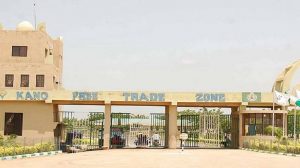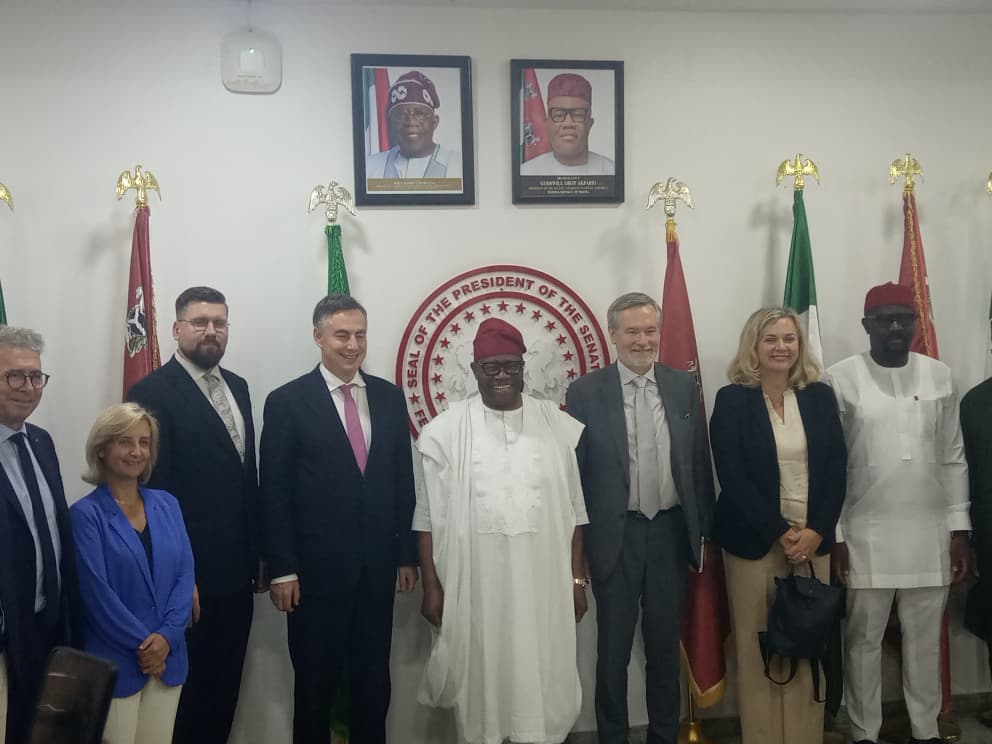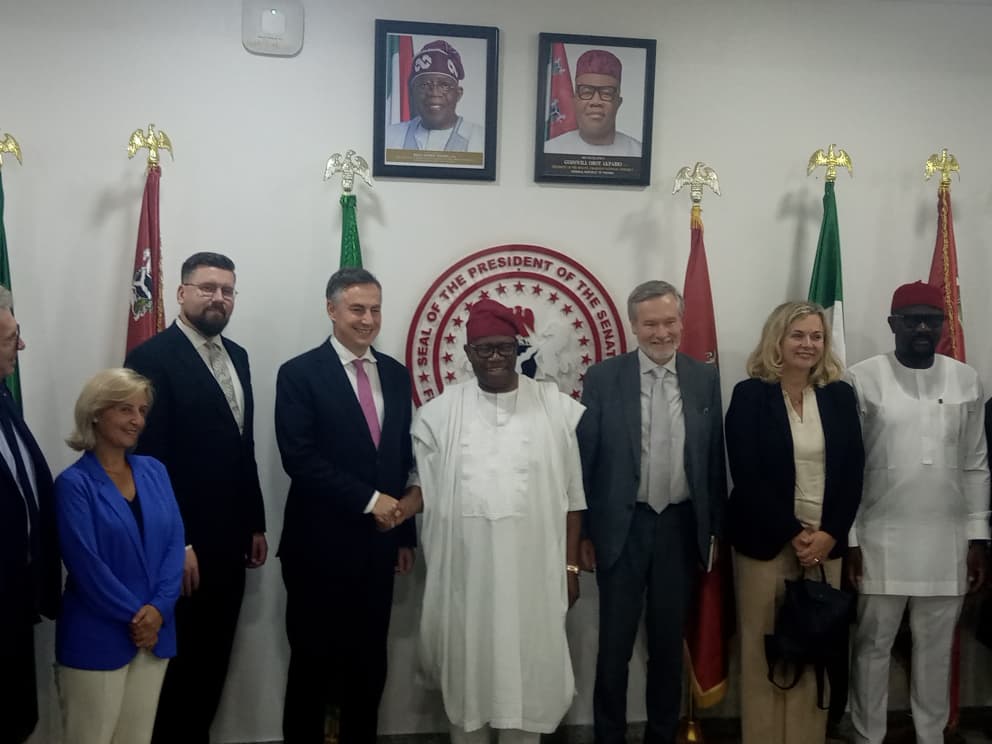Economy
FG begins reform of Calabar, Kano special economic zones
The Federal Government has begun the process of reforming the Calabar and Kano Special Economic Zones (SEZs) in line with the approved processes for economic reforms.

Amb. Mariam Katagum, Minister of State for Industry, Trade and Investment, made this known on Thursday in Abuja at the Contract Execution Ceremony and kick-off meeting on the Calabar and Kano SEZs.
It would be recalled that the National Council on Privatisation (NCP) at its meeting held on June 12, 2018, approved the reform of two Federal Government owned SEZs in Calabar and Kano.
The minister noted that in line with NCP approved process for economic reforms, the next step was the engagement of Transaction Advisers who would guide the reform process.
Katagum noted that the transaction adviser was selected through a competitive tendering process.
“The procurement process commenced with the short-listing of nine firms from the national database to compete for the provision of transaction advisory services for the reform of the two SEZs.
“Request for Proposals (RfPs) were subsequently issued out to the short listed nine firms on Aug. 16, 2018,” she said.
The minister said that at the deadline for the submission of their response to the RfP on Sept. 14, 2018, five out of the nine shortlisted firms submitted proposals.
Highlighting responses received from the firms, she listed the five shortlisted firms that responded as Cordos Capital Limited, Ernst and Young, KPMG, PWC and Zenith Capital while four firms did not respond.
She also listed the firms that did not respond as Chapel Hill Denham, Coronation Merchant Bank, Stanbic IBTC and Vetiva Capital.
Katagum said an eight-man evaluation team, comprising representatives of the ministry, Ministry of Justice, Nigeria Export Processing Zones Authority (NEPZA) and Bureau of Public Enterprises (BPE), was constituted to evaluate the technical proposals received.
She explained that Quality Based Selection (QBS) method was adopted for the procurement process and a minimum benchmark score of 75 per cent as specified in the Request for Proposals (RfPs) was used to select the winning bidder.
She said at the conclusion of the evaluation, Ernst and Young emerged as the best qualified firm with a total score of 83.85 per cent.
According to the minister, the selection of Ernst and Young firm was subsequently approved by the National Council on Privatisation.
“Today’s signing ceremony brings to an end the Consultant Procurement Phase of the Transaction.
“It is the sincere expectation of the TIC that the Ernst and Young Consortium will add immense value to the ongoing revitalisation processes on the SEZs,” she said.
The minister urged the firm to cause a major breakthrough in the country’s effort at engendering massive industrial revolution and inflow of Foreign Direct Investments (FDI).
Responding, Mr Damilola Aloba, Partner, Strategy and Transactions, Ernst and Young Consortium, expressed delight for being appointed as transaction adviser on the concession of the two SEZs.
Aloba said Nigeria presently has about 34 SEZs, with the benefit of creating jobs, catalysing economic growth and contributing tremendously to the economic development of the country.
According to him, the SEZs support import substitution, facilitate export and economy diversification.
He said the first thing was to carry out due diligence on the two zones intended to find out financial, legal, environmental, real estate and human resource due diligence.
In addition, he said it would also carry out evaluation of the two SEZs and business and assets valuation of the zones, including outline business case toward assessing authentic impact and benefits of the zones.
The expert further said it would develop a strategy to sensitise the whole world about the benefits and pictures of each job in the SEZs, adding that there would be extensive bidding processes to determine right technical, managerial and financial capabilities.
“After these, the actual concession process will commence for the investors or potential concessionaire through due diligence,” he said. (NAN)
Economy
JUST IN: FG Halts Planned 15% Import Duty on Petrol, Diesel

By: Fabian Apechihin
The Federal Government has suspended the planned implementation of a 15 percent import duty on petrol and diesel.
This was disclosed on Thursday by George Ene-Ita, Director of Public Affairs at the Nigerian Midstream and Downstream Petroleum Regulatory Authority (NMDPRA), who urged Nigerians to avoid panic buying.
President Bola Tinubu had earlier, on October 29, approved the imposition of the tariff following a proposal by the Executive Chairman of the Federal Inland Revenue Service (FIRS), Zacch Adedeji. The approval, conveyed in a letter signed by the President’s Private Secretary, Damilotun Aderemi, was intended to take effect from November 21, 2025.
The proposed policy sought to impose a 15 percent duty on the cost, insurance, and freight (CIF) value of imported petrol and diesel. It was aimed at supporting domestic refineries — such as the Dangote Refinery and modular plants — by making imported fuel less competitive. However, experts cautioned that the move could lead to an increase of up to ₦150 per litre in pump prices and further fuel inflation and transportation costs.
In its latest update, the NMDPRA confirmed that the import duty is no longer under consideration.
“It should also be noted that the implementation of the 15% ad-valorem import duty on imported Premium Motor Spirit (PMS) and Automotive Gas Oil (Diesel) is no longer in view,” the Authority stated.
The agency further assured the public of adequate fuel availability across the country, noting that national stock levels remain within the required sufficiency threshold.
“There is a robust domestic supply of petroleum products — including PMS, AGO, and LPG — from both local refineries and imports, ensuring timely replenishment of depots and retail stations,” the statement added.
NMDPRA cautioned marketers against hoarding, panic buying, or arbitrary price increases, emphasizing that it will continue to monitor the market to prevent any disruption in supply.
“While appreciating the efforts of stakeholders in maintaining smooth and uninterrupted supply, the public is assured of NMDPRA’s commitment to safeguarding national energy security,” the statement concluded.
Economy
FGN, Sign $400m Deal To Boost Local Steel Production

From Hassan Taiye
The Federal Government of Nigeria, FGN, through the Ministry of Steel Development, has signed a Joint Strategic Cooperation Declaration with Stellar Steel Company Limited.
Stellar Steel Company Limited is a steel-manufacturing enterprise established to operate in Nigeria, with major investment backing from Chinese parent groups: Galaxy Group and RSIN Group based in Fuzhou, Fujian Province, China.
The company has committed approximately US$450 million for a steel plant project in Ogun State, Nigeria, scheduled to begin operations by mid-2026.
This landmark partnership is aimed at revitalising Nigeria’s steel industry and reducing the nation’s dependence on imported steel products, according to a statement signed by the the Principal Information Officer, PIO, Ijomah Opia, for the director, Information and Public Relations in the ministry.
The agreement, signed in Abuja, on Tuesday 28th October, 2025 will see Stellar Steel invest $400 million in the construction of a modern Steel Plant in Ewekoro, Ogun State. The project will be developed in three phases, with the first phase expected to begin production by 2026.
The Minister of Steel Development Prince Shuaibu Abubakar Audu signed the agreement when he hosted Mr Li, President of Inner Galaxy Group and other members of the Stellar Steel Company Limited in the Ministry’s Headquarters in Abuja.
According to Prince Audu, the collaboration aligns with the federal government’s goal of achieving 10 million tonnes of crude steel production per annum by 2030, a major step toward industrial self-reliance and economic diversification.
The minister further stated that the Federal Ministry of Steel Development would facilitate policy and infrastructure support, including inclusion of Stellar Steel’s logistics projects in the National Infrastructure Plan and access to available fiscal incentives.
Highlights of the cooperation includes the followings:
1.Development of a localised iron ore supply chain to reduce import dependence and save over $1 billion in foreign exchange annually.
- Creation of more than 2,000 direct and 20,000 indirect jobs across the steel value chain.
- Promotion of green steel production using clean and energy-efficient technologies.
- Strengthening of Nigeria’s position as a regional steel manufacturing hub in West Africa.
Audi also said that in return, Stellar Steel would prioritise local recruitment and training, partnering with Nigerian universities to build technical and managerial expertise in steel production.
Prince Shuaibu emphasised that this strategic cooperation marks a new era for Nigeria’s steel industry and demonstrates the government’s commitment to sustainable industrial growth and economic transformation.
In his remarks the leader of the delegation, Mr Li assured the minister that Stellar Steel would respect all agreements reached and would ensure the completion of the project in record time and assured that all safety standards will be observed.
Mr Li was accompanied during the visit by Mr You Xiastian, Vice Chairman of RSIN Group, Mr Jackie Den, Vice President of Inner Galaxy Group and Mr Yin, Director of RSIN Group.
He recalled that the Minister of Steel Development, Prince Audu, performed the groundbreaking ceremony of the Steel Plant in Ogun State sometime in April, 2025.
Speaking at the signing, representatives of both parties emphasised that the partnership would strengthen Nigeria’s industrial base, create jobs, and foster technology transfer in the sector.
Economy
EU Delegation Strengthens Ties with Nigerian Senate

From Hassan Taiye
A high-level delegation from the European Union (EU) Parliament’s Foreign Affairs Committee, led by Mr. David McAllister, paid a courtesy visit to the Nigerian Senate today October 28, 2025.

“We are here to deepen our understanding of the situation in West Africa and strengthen our partnership with Nigeria,” McAllister said.
Senate President Godswill Akpabio welcomed the delegation, emphasizing Nigeria’s strategic partnership with the EU. “Nigeria is committed to strengthening ties with the EU, highlighting areas of mutual interest, including security, trade, and governance,” Akpabio said.
The delegation, comprising Ambassador Greta Mylott, EU Ambassador to Nigeria and ECOWAS, Miss Zelaya Zorko, Miss Mata Tamido, Sebastian Tankman, General Christophe Gomart, and Sebastian Buharo, is undertaking a comprehensive tour of West Africa, with stops in Nigeria and Ghana.
During the visit, Akpabio shed light on the challenges facing female representation in Nigeria’s parliament. “Women often vote for male candidates, making it difficult for female candidates to win elections,” he noted.
“The Senate is exploring innovative solutions, including constitutional amendments, to boost female participation in the legislative process, with support from organizations like the Black Women’s Forum.”
The EU delegation’s visit aims to foster greater understanding and cooperation between the EU and Nigeria, addressing shared concerns, such as terrorism, climate change, and economic development.
“The EU is committed to supporting Nigeria’s development efforts,” McAllister assured the Senate, emphasizing the bloc’s interest in seeing a stable, prosperous, and democratic Nigeria.
Their visit also includes participation in the forthcoming International Islamic Conference on Security and Governance in West Africa and the Sahel, scheduled for November 4-6, 2025 at ECOWAS Commission.
Akpabio expressed optimism about the potential for enhanced cooperation, highlighting Nigeria’s readiness to work with the EU to address common challenges.
-

 Uncategorized5 years ago
Uncategorized5 years agoFG, states urged to harness flooding for ranching, others with technology – Agbaje
-

 Headlines10 years ago
Headlines10 years agoBreaking: EFCC seals Borno House of Assembly, as Hon members take to their heels
-

 News11 years ago
News11 years agoNigeria Security Operatives Stage Manhunt For Homosexual Perpetrator
-

 News9 years ago
News9 years agoHow 21-year-old Girl fled community over accusation of lesbianism
-

 News10 years ago
News10 years agoYobe Gov Moves Against Deputy
-

 Opinion7 years ago
Opinion7 years ago7 signs she has friend zoned you
-
Technology4 years ago
Online job placement company headhunts women
-

 Headlines10 years ago
Headlines10 years agoBorno Dep Gov Abducts Another Church Leader





